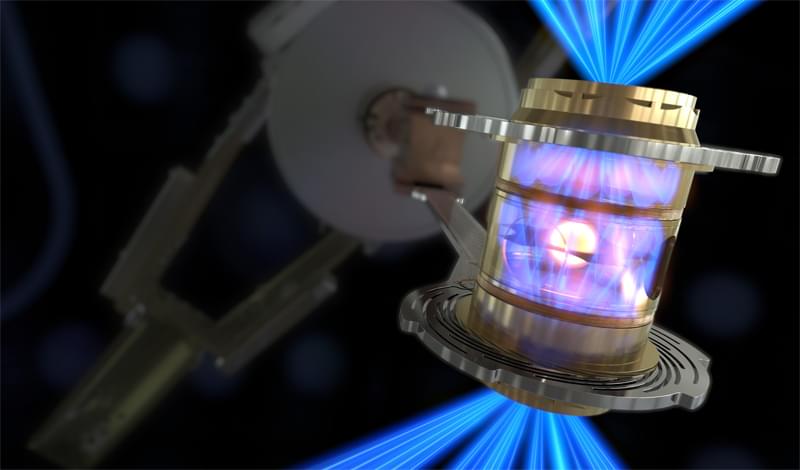The U.S. Department of Energy (DOE) has today confirmed the achievement of “fusion ignition” at Lawrence Livermore National Laboratory (LLNL) – a major scientific breakthrough, many decades in the making, which could pave the way to near-limitless clean power.
On 5th December, a team at LLNL’s National Ignition Facility (NIF) conducted the first controlled experiment in history to reach this milestone, also known as scientific energy breakeven, meaning it produced more energy from fusion than the laser energy used to drive it. This first-of-its-kind feat will provide invaluable insights into the fusion energy process, which scientists have been attempting to develop for nearly a century.
Inside the target chamber of LLNL’s National Ignition Facility, 192 laser beams delivered more than 2 million joules of ultraviolet energy to a tiny fuel pellet to create the fusion ignition. These lasers heated the capsule to 100,000,000°C – more than six times hotter than the Sun’s core, and compressed it to more than 100 billion times the pressure of Earth’s atmosphere. Under these unimaginable forces, the capsule would have imploded on itself, forcing its hydrogen atoms to fuse and release energy.
